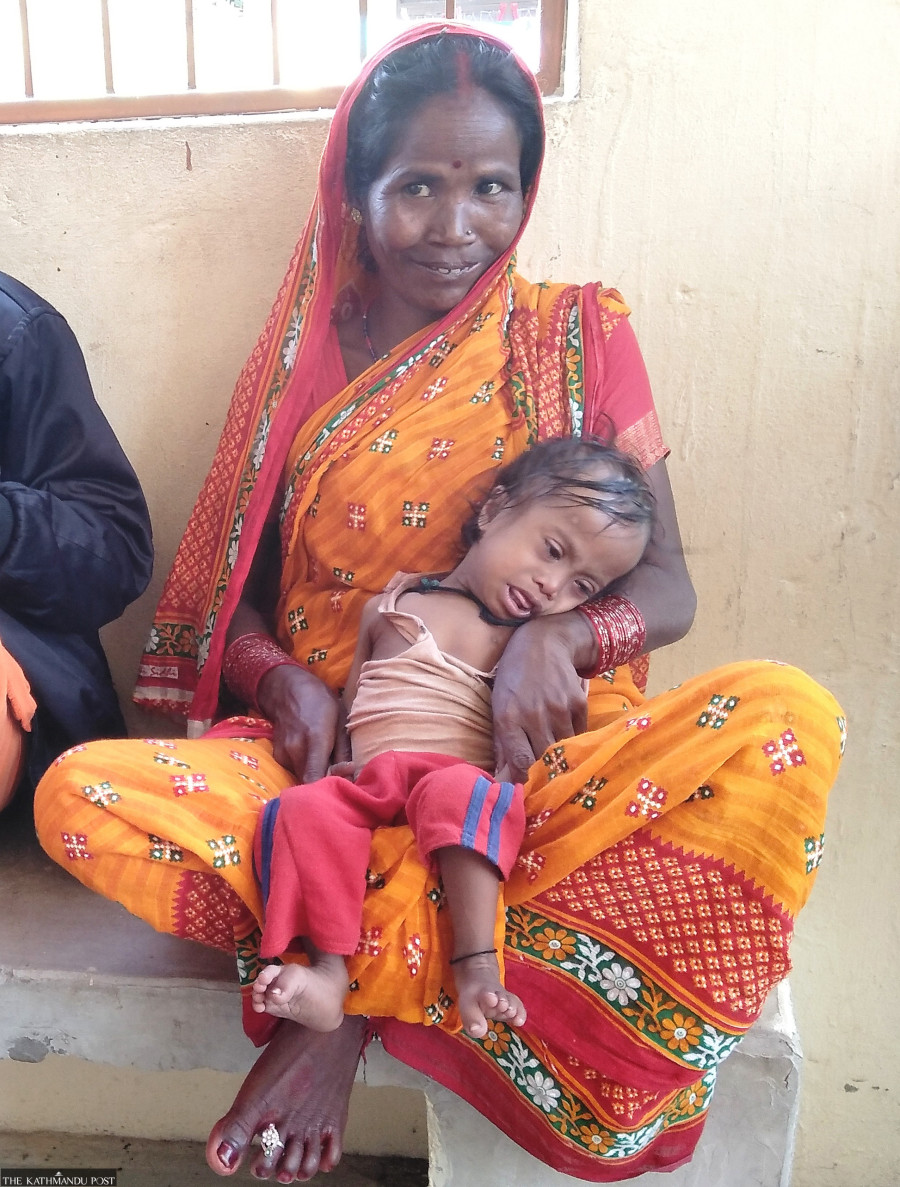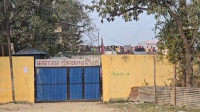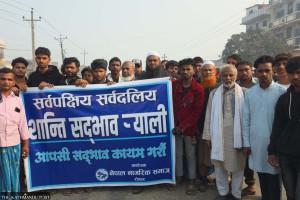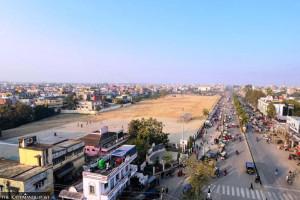Madhesh Province
Malnutrition a cause for concern in Province 2
Malnutrition is a serious health challenge in the province mainly due to a lack of awareness among guardians regarding nourishing food for children.
Shankar Acharya
Sachin Patel, the eight-year-old son of Rambabu and Shobha Devi Patel of Alau in Birgunj Metropolis-17, is malnourished and a patient of tuberculosis. The boy was diagnosed with malnutrition while receiving treatment for tuberculosis at Narayani Hospital. He was admitted to the Nutrition Rehabilitation Home (NRH) of the hospital on November 7.
Gopal and Radhika Banarji’s six-year-old son and one-year-old daughter are also admitted at the rehabilitation home for malnourished children. The couple, residents of Bhagawatitol in Birgunj, is taking care of their four-year-old malnourished son at home.
Similarly, the 16-month-old daughter of Raj Kumar Ram and Punam Devi from Itiyahi in Bara district was taken to the NRH on October 19. She weighed just 4kgs when she was brought to the centre. She was discharged after 27 days at 6.5kgs.
The couple’s eldest daughter also suffered from severe malnutrition six years ago and had sought treatment at the same facility.
Malnutrition among children is widely prevalent in Parsa and its neighbouring districts. Surprisingly, most of the malnutrition cases are from lower-middle-class families who have the ability to offer regular meals to their children.
“Most of the malnourished children are from those families who can feed their children well. But what matters more is what kind of food they are giving their children,” said Sarita Yadav, programme coordinator of the NRH at the hospital.
“People in this region eat more rice and lentils than green vegetables and legumes. They give the children the same diet. More than a lack of food, the reason behind malnutrition among children here is the absence of nutrition in their diet,” said Yadav.
According to her, most families in the area eat potatoes for vegetables which have low nutritional value.
“They do not feed their children milk, curd, eggs and meat. As a result, malnutrition has been a serious issue among children in the area,” she said.
Working families in the area also rely heavily on junk food to feed their children, says Yadav.
“Parents substitute well-balanced meals with noodles, biscuits, pakodas and such. The diet does not offer anything substantial to boost the health of young children,” she said.
Malnutrition has been a serious health challenge in the region, according to experts, mainly due to the lack of awareness among guardians regarding nourishing food needed for a child’s growth.
The Patel family from Alau cannot be categorised as marginally poor. When Sachin fell ill some six months ago, his parents took him to a neighbouring Indian town to seek treatment. They were, to some extent, taken by surprise when their son was diagnosed with malnutrition.
“It’s not that we don’t feed Sachin well,” said Shobha. “We can afford to give him more than two meals a day but we weren’t aware of what is good food for him and what is bad.”
A total of 2,680 malnourished children up to 14 years of age have been admitted at the Nutrition Rehabilitation Home in Narayani Hospital since its establishment in 2006. Among them, 1,473 children are from Parsa alone.
According to the nutrition home, 820 malnourished children from Bara, 156 from Rautahat, 44 from Sarlahi, seven from Makwanpur, and two each from Chitwan, Dhanusha and Morang have received treatment from the NRH so far. As many as 160 children from various bordering settlements of India have also sought treatment at the NRH.
According to Yadav, the nutrition home identifies malnourished children on the basis of the latest standard set by the World Health Organisation.
“The height of a newborn should generally be 50cm. The height should increase by 25cm, 12.5cm and 12.5cm in the next three years,” said Yadav. “The children who are brought here for treatment are small for their age which is indicative of malnourishment.”
Malnourished children are also prone to various health issues. According to Yadav, a total of 114 children admitted at the NRH have suffered from tuberculosis and 22 others suffered from HIV/AIDS. Health issues like heart ailment, thyroid, meningitis, down syndrome and Thalassemia were also reported among the children admitted at the NRH.
Health workers suggest that pregnant women eat nutritious foods during pregnancy to avoid malnutrition in their newborns.
“In the course of the treatment, we offer balanced meals of rice, lentils, vegetables, legumes, eggs and meat to the children,” said Yadav. “That is all the parents have to do, feed nutritious food which is easily available.”




 22.17°C Kathmandu
22.17°C Kathmandu















